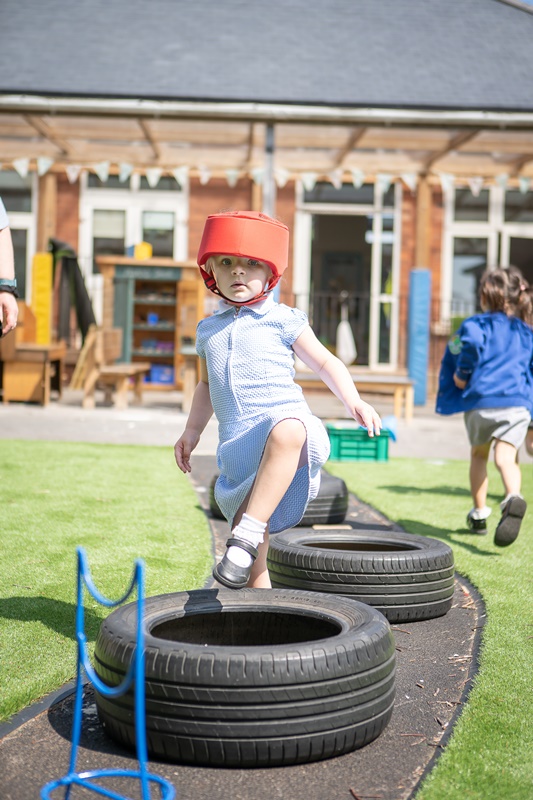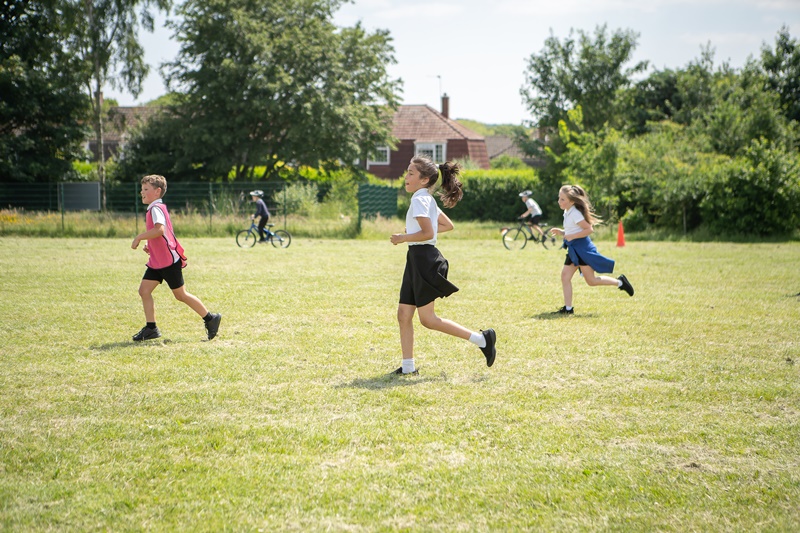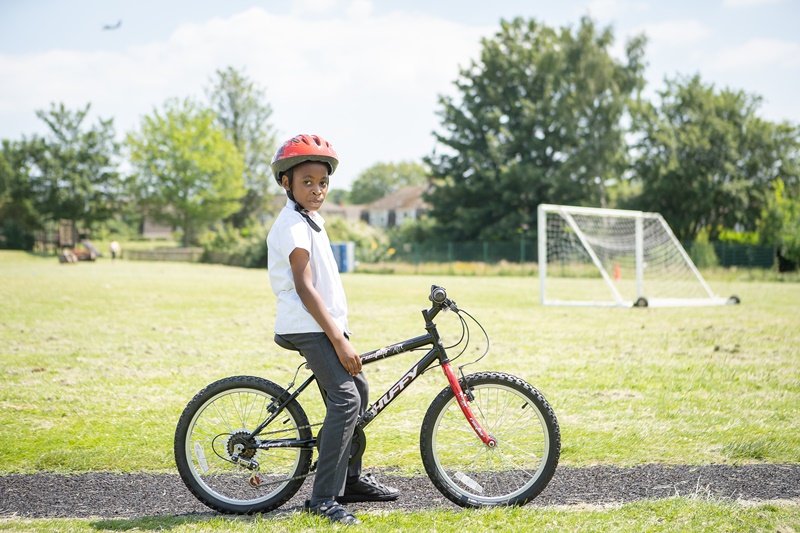Physical Education
Physical Education (PE) at Whipton Barton Federation provides a broad and balanced P.E curriculum. Through P.E the children develop behaviour and attitudes that will benefit them through school life and beyond. Children experience a broad range of activities including gymnastics, dance, games, outdoor education, athletics and swimming.
Through our P.E curriculum, children learn:
- How to stay fit, healthy and active and enjoy doing so, which in turn, encourages the children to engage in physical activity and sport in their own time.
- To win and lose, support others and be supported, showing sportsmanship and good character.
- To work as part of a team towards a common goal as well as individually improving their performance.
- To be creative in a range of activities.
- To play competitively, respecting officials and other plays.
- To develop spiritually, morally and culturally through diverse activities and opportunities.

Physical Education is a perfect opportunity to develop the whole child. Our P.E curriculum develops the whole child by:
- Strengthening thinking and decision-making skills.
- Building and increasing confidence and self-esteem.
- Developing character and resilience.
- Enhancing their commitment and desire to improve.
- Allowing opportunities for enjoyment, fun and to be free-spirited.
- Fostering feelings of safety and security.
Our P.E Curriculum enables our Reception children to develop in the following areas of their Early Learning Goals:
Personal, Social and Emotional Development
- Showing resilience and perseverance
- Thinking about the perspective of others
- Knowing and talking about healthy eating and the importance of regular exercise
Physical Development
- Revising and refining fundamental movement skills, such as rolling and jumping
- Developing agility, balance, coordination and strength
- Developing small motor skills
- Using their core muscle strength
- Combining different movements with ease and fluency
- Confidently and safely using small and large apparatus
- Developing ball skills, such as throwing for accuracy
Communication and Language
- Listening attentively and responding appropriately
- Participating in discussions
- Expressing ideas and feelings
Understanding the World
- Drawing information from a simple map
- Describing what they see, hear and feel outside
Expressive Arts and Design
- Performing and trying to move in time with music
- Moving to and talking about music
- Watching and talking about dance
- Developing storylines
The Key Stage One and Key Stage Two curriculum is planned progressively to allow children to build on and develop previously learnt skills enhancing these further. In Key Stage One, children develop their running, jumping and throwing skills, their ability to attack and defend and their hitting and catching skills. They also learn dance, gymnastics and take part in outdoor adventurous activities (OAA). In Key Stage 2, all children can lead a warm up or cool down in their PE lessons. A variety of sports are taught across KS2 as well as fitness and wellbeing units. There are also other frequent times during the week where children are physically active including, Early Morning Learning, active Maths and English lessons, assemblies, movement breaks, break times and lunchtimes and after school clubs.
At Whipton Barton Federation, we offer swimming to Year 4 children. Children who have not been successful in swimming 25 meters attend top up sessions during Year 5.
Children’s achievements in Physical Education both inside and outside of our school are celebrated during Friday’s Celebration Assembly and rewarded using Headteacher's Prizes and Dojo Points, whilst sharing successes on our school Facebook page. Children actively seek to share their achievements and relish the opportunity to explain to the whole school what they had to do.
All children have opportunities to attend PE events throughout the year and represent Whipton Barton Federation at PE competitions. We believe that nothing should be a barrier to physical education with every aspect having the capacity to be adapted.


